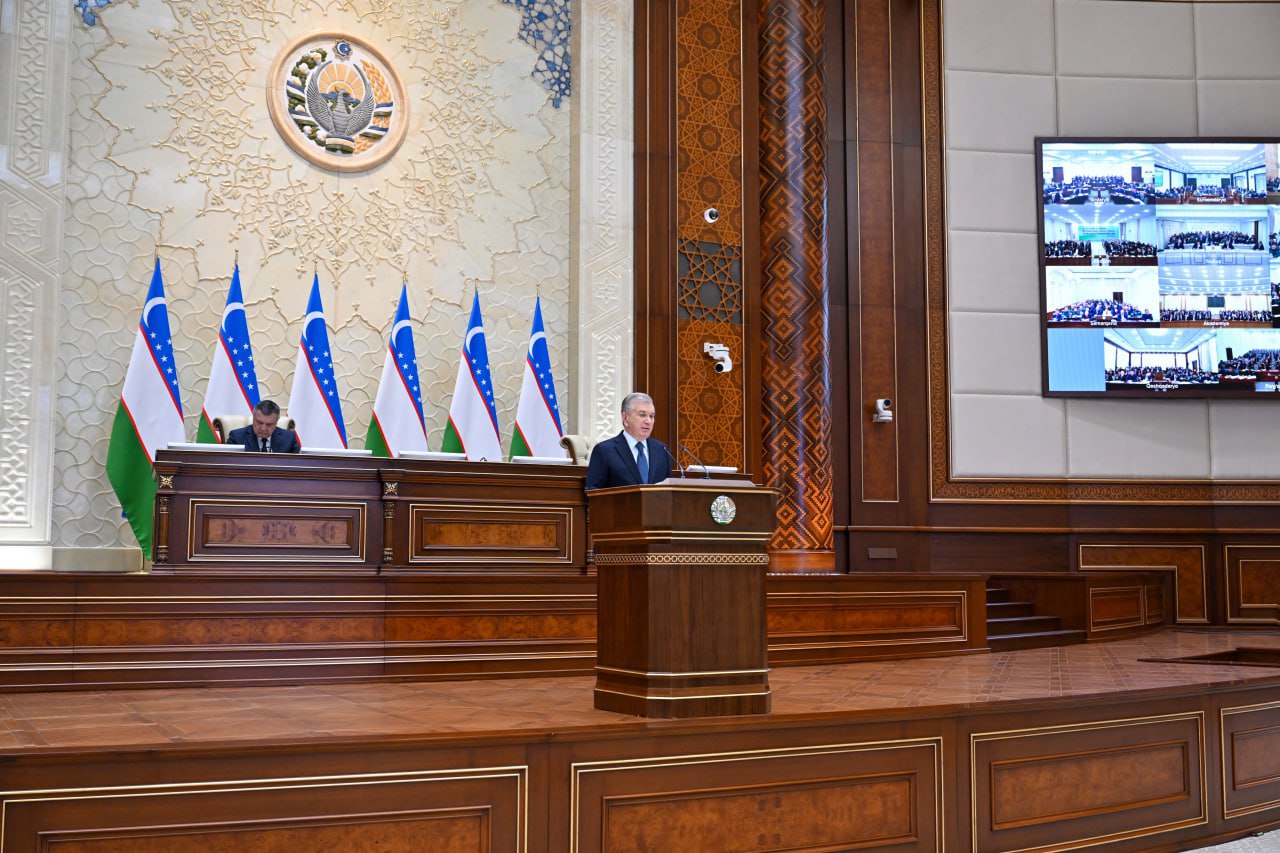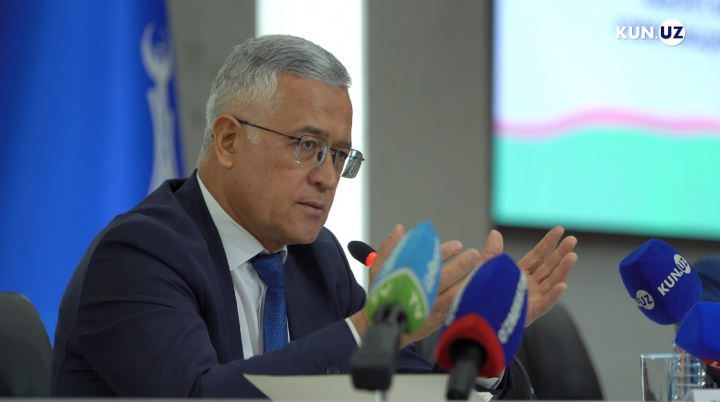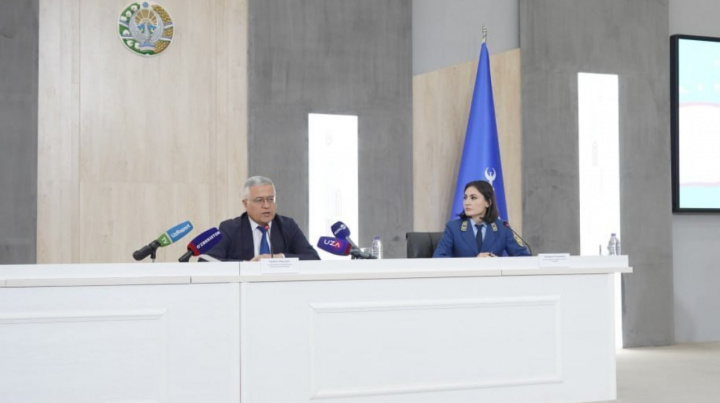President Mirziyoyev calls for adoption of law on income declaration for civil servants
At an expanded meeting dedicated to assessing the effectiveness of anti-corruption measures and outlining future priorities, the need to adopt a law on income declaration for civil servants was emphasized. It was noted that public opinion on this issue is of great importance.

Photo: Presidential Press Service
Officials were instructed to submit the draft law for public discussion and introduce it by April 1.
Additionally, the necessity of considering liability for illicit enrichment was highlighted. A proposal was made to introduce a legal provision on illicit enrichment, requiring civil servants to provide proof of the origin of any assets that do not align with their declared income.
The president called on the National Council and the parliamentary committees on anti-corruption to develop proposals in line with international standards.
“Preventing corruption begins with selecting professional and dedicated personnel for public service and ‘inoculating’ them with integrity,” the president stated.
It was pointed out that the role of the Civil Service Development Agency and the Academy of Public Administration as leading institutions in training, educating, and appointing personnel has not been sufficiently felt.
A decision was made to abandon the outdated "objective-based" evaluation of personnel and transition to a system that assesses employees’ qualifications, potential, and achievements using advanced IT technologies.
When appointing candidates, the primary criteria will not be the university they graduated from or where they previously worked, but rather their knowledge, experience, and demonstrated results. In this regard, both the strengths and weaknesses of candidates should be assessed impartially.
It was emphasized that in the future, leadership positions should be filled with young professionals who have firsthand experience working with people in local communities and addressing their issues.
Instructions were given to ensure open and transparent recruitment processes, establish a registry of civil servants, and introduce a draft decree to study the susceptibility of personnel to corruption.
Attention was drawn to the lack of a clearly defined list of corruption-related crimes in the current legislation.
It was noted that the law approved by Parliament mainly focused on strengthening punishments but did not address key aspects such as corruption prevention, fostering public intolerance toward corruption, developing preventive mechanisms, and incentivizing individuals who assist in uncovering crimes.
For this reason, the president announced that he would return the law for revision.
Additionally, it was highlighted that liability for crimes related to money laundering should be aligned with international standards.
For instance, in Switzerland, Austria, Germany, Russia, and Azerbaijan, insider trading — where individuals leak parameters of public procurement projects or large business deals for personal gain — is considered a form of money laundering under the law.
Recommended
List of streets and intersections being repaired in Tashkent published
SOCIETY | 19:12 / 16.05.2024
Uzbekistan's flag flies high on Oceania's tallest volcano
SOCIETY | 17:54 / 15.05.2024
New tariffs to be introduced in Tashkent public transport
SOCIETY | 14:55 / 05.05.2023
Onix and Tracker cars withdrawn from sale
BUSINESS | 10:20 / 05.05.2023
Latest news
-
Uzbekistan introduces digital labeling for agrochemicals and fertilizers
SOCIETY | 19:02
-
Central Asia unites to end tuberculosis by 2030 under new WHO-led initiative
SOCIETY | 19:02
-
Uzbekistan officially joins Eurasian Development Bank
POLITICS | 19:01
-
Tashkent teacher wins lawsuit over unpaid compensation, receives 337 million UZS
SOCIETY | 18:56
Related News

16:40 / 04.04.2025
Aggregators to pay taxes on behalf of self-employed taxi drivers and couriers earning over 100 million UZS

15:39 / 03.04.2025
Tax Committee develops new system to track personal incomes, including foreign earnings

13:51 / 02.04.2025
Gov’t to enforce income tax for artists from 2027

10:47 / 05.03.2025



